
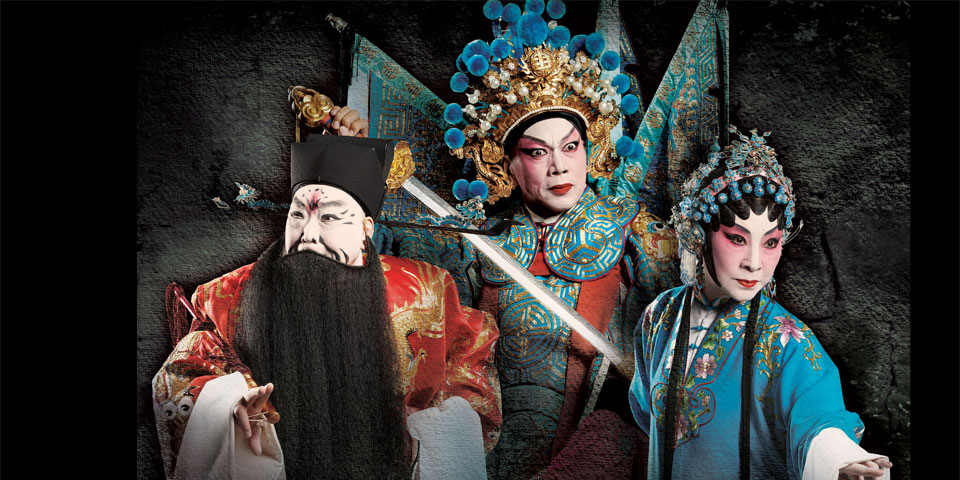
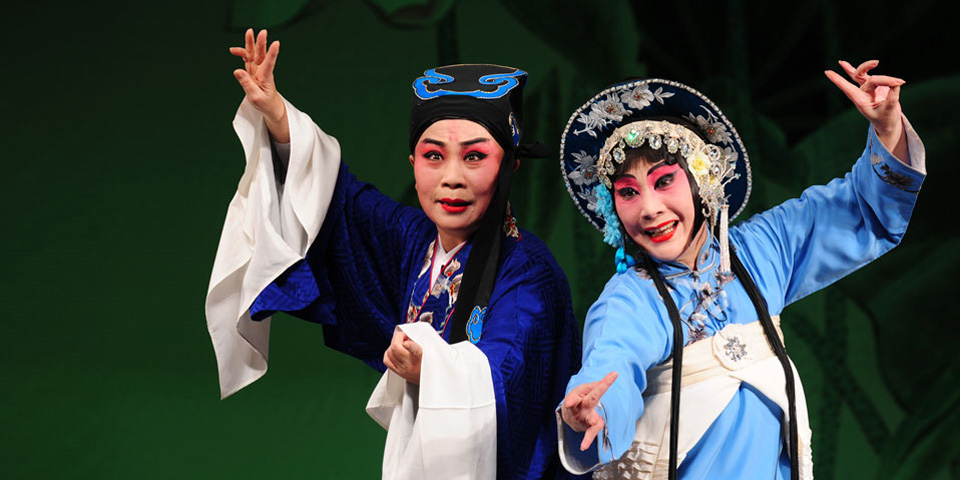
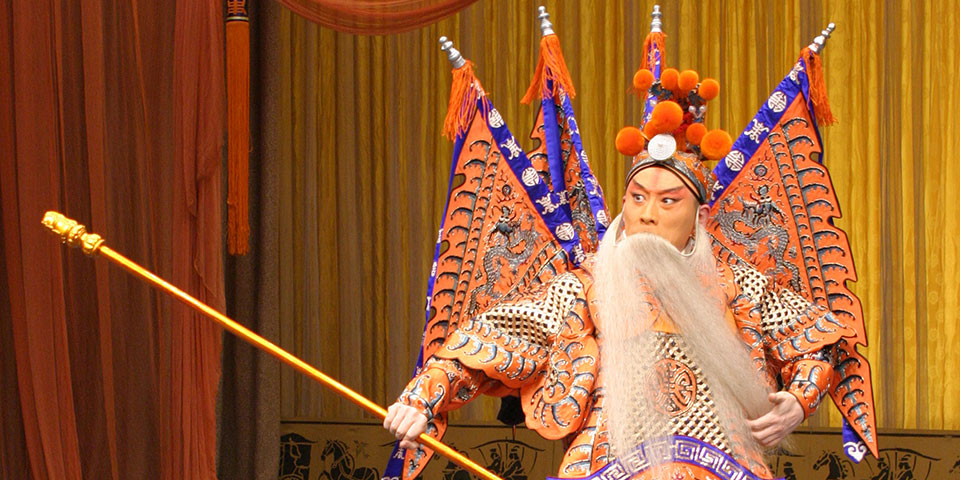
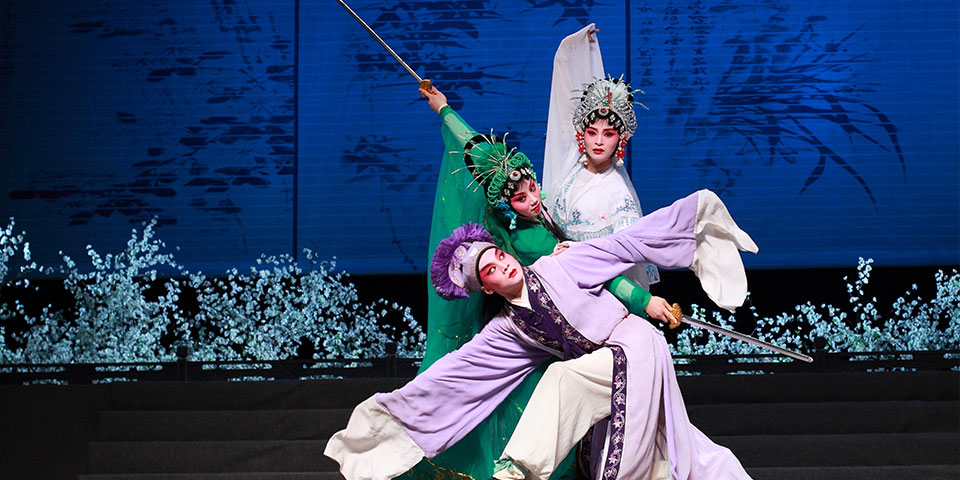
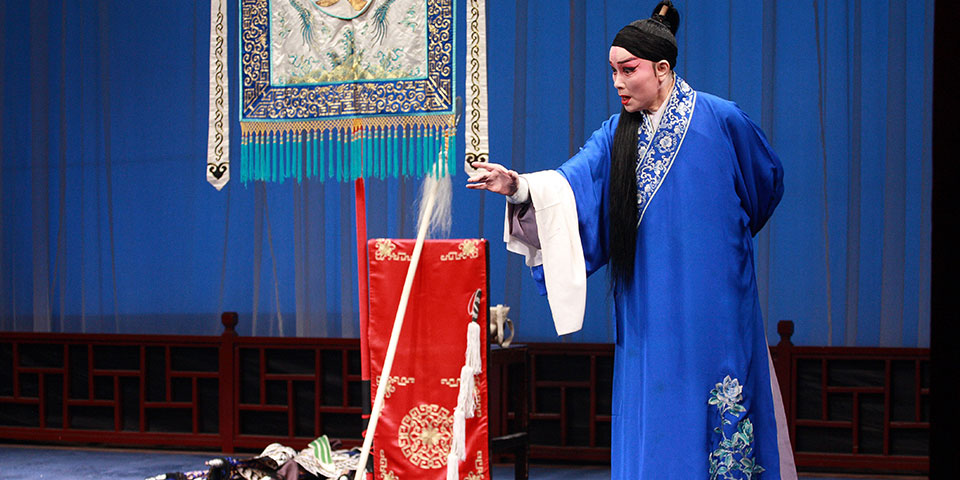
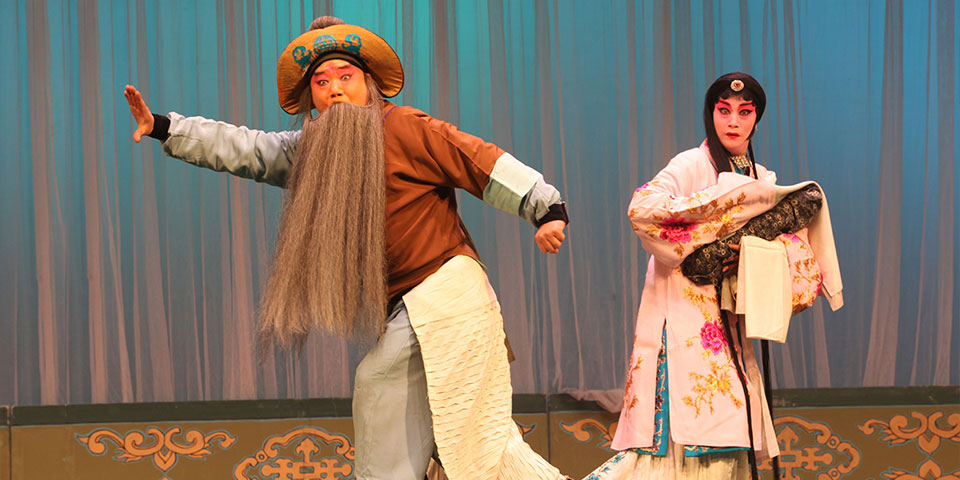
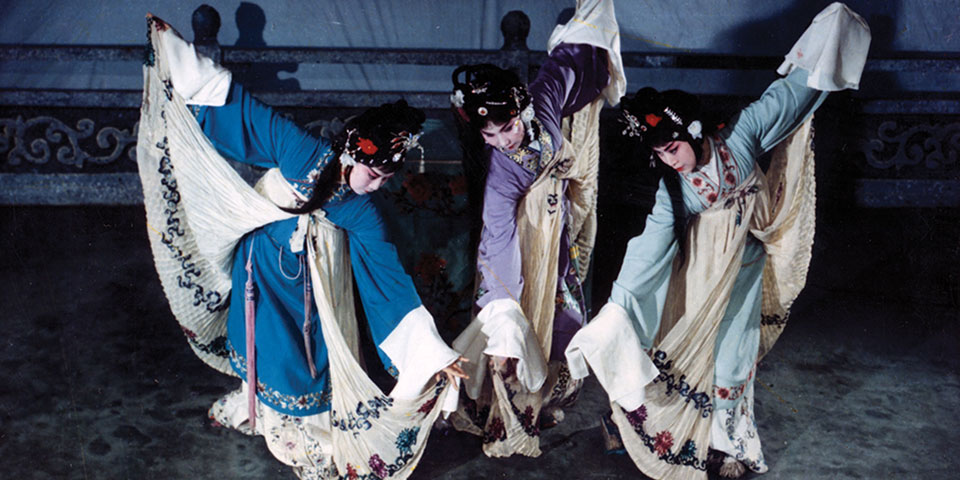
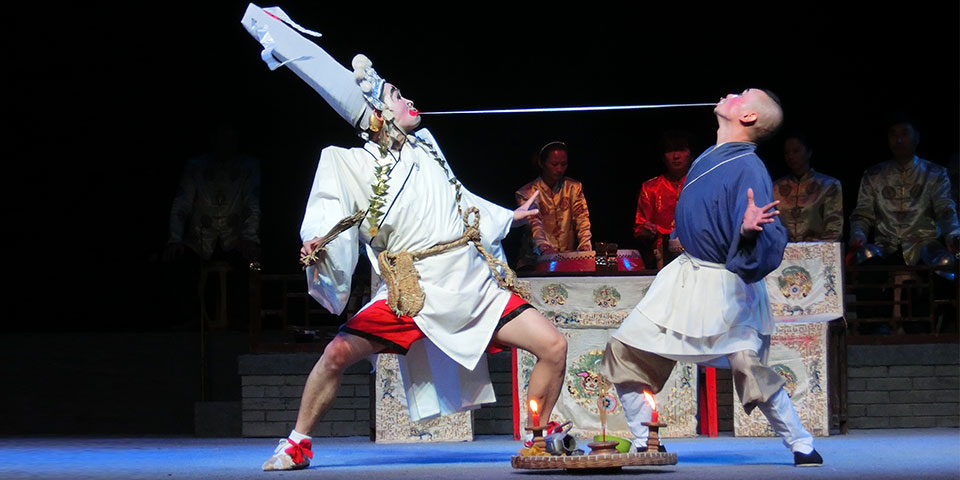
Extension Reading
Laosheng (older male), Wusheng (military male) and Hualian (painted face) roles in Peking Opera
George C. Shen
Laosheng (older male) is a principal role type in Peking Opera. It can be further divided intosinging, acting and military types, and the military type older male can again be subdivided into two types: kaoba and duanda. Dingjun Mountain and Yangping Pass are two exemplary works for kaoba laosheng, whereas Qin Qiong Inspecting the Army Formation is a typical number for duanda laosheng. While all Peking Opera performers must meet stringent standards for song, speech, dance and combat, the role of wulaosheng must excel at all of them.
The leading actor in Dingjun Mountain and Yangping Pass is an old general clad in full armour (called kao) and goes into combat with a long weapon (called bazi) and hence the name kaoba. He sings many arias in the play, and the combat scenes are vigorous. In one scene, he sings a fast tempo passage while running around the stage holding a long weapon and a horsewhip. His singing, movements, footwork, eye expressions, stroking of the beard, etc. must all synchronize with the tempo of the music, emphasized by quick percussive beats. The work is therefore a bravura repertoire for the actor specializing in kaoba laosheng roles.
On the other hand, Qin Qiong Inspecting the Army Formation is an exemplary work for duanda laosheng (literally, duanda means fighting with a short weapon). Here the leading male is a middle-agedhero wearing a long gown with long sleeves and tight-fitting garments underneath, and with short weapons tied to his back. While singing and dancing, he has to mime the movements of riding on a horse and inspecting the army formation, at the same time executing routines of whirling a horsewhip, stroking his beard and waving his flowing sleeves. The taxing performance of song and dance in this play fully demonstrates the classic art of the duanda laosheng role, thus making it a gem in Peking Opera.
Lianhuan Mountain consists of four episodes: At the Fortress, Stealing the Horse, Visiting the Mountain and Stealing the Weapon. The main character in the first two episodesis Dou Erdun, a famous bandit played by hualian (painted face). Both episodes call for good singing and combat techniques. In Visiting the Mountain, Huang Tianba, a wusheng role, visits Dou Erdun at Lianhuan Mountain, where they engage in a dialogue of wits. Stealing the Weapon describes how Huang’s colleague Zhu Guangzu, played by wuchou (comic military male), sneaks into Dou Erdun’s fortress at night and steals his weapon. Historically, the most famous performer of Huang Tianba was Yang Xiaolou (1878-1938), and those of Dou Erdun were Hao Shouchen (1886-1961), Hou Xirui (1892-1983). The most famous partnership cast in the 1940’s was Gao Shenglin (1915-1989) and Qiu Shengrong (1915-1971). Performing Visiting the Mountain at this year’s Festival is Shang Changrong (1940- ), one of the most famous actors in ‘painted face’ roles today and once a student of Hou Xirui. So it promises to be another bravura performance from a great Peking Opera lineage.
The story of Interception on the River to Snatch the Young Prince is based on an historical event that took place in 211 (era of the Three Kingdoms). It tells the story of general Zhao Yun, who single-handedly snatched the young prince Liu Chan (later the king of Shu from 223 to 263) from her step-mother who, with the child, was being escorted by a naval officer in a vessel from her own country. The play has two versions, in one of which Zhao Yun is played by a wusheng (military male), in another by a wulaosheng. The former is being performed more often today and is considered one of the most difficult wusheng roles, because he must possess both a good singing voice and excellent acrobatic training.
Dr. George C. Shen is Chief Editor Emeritus of the Hong Kong Economic Journal. He gave six highly successful talks on Peking Opera at the Hong Kong Cultural Centre in 2010, the contents of which were published in 2012 as Six Talks on Peking Opera. He gave two talks on Peking Opera in Hong Kong again in 2011, to packed audience. Dr. Shen currently lives in California, where he has served as President of the Society of Chinese Performing Arts, San Francisco, and Vice-President of the Mei Lanfang Society.




